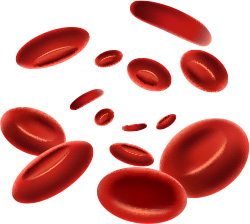ARUP offers routine and esoteric testing for bleeding and thrombotic disorders. Our test menu and new test developments are guided by the clinical expertise of our medical directors and research and development (R&D) scientists. Our board-certified medical directors are available to answer questions regarding test results, discuss possible test interferences, and consult with fellow healthcare professionals on challenging or unusual cases.

Featured Tests
Prolonged Clot Time Reflexive Profile
- This test helps clinicians determine the cause of a prolonged prothrombin time or activated partial thromboplastin time using an algorithmic approach with pathologist-directed test ordering.
- Test results include a custom interpretive comment by an ARUP medical director.
Direct Factor Xa Inhibitor Levels (Apixaban Level and Rivaroxaban Level)
- These tests measure the concentration of each respective direct factor Xa inhibitor.
Serotonin Release Assay (Heparin Dependent Platelet Antibody), Unfractionated Heparin
- This is the gold standard test for the diagnosis of heparin-induced thrombocytopenia (HIT).
- This panel test, which uses chromogenic and enzyme-linked immunosorbent assay (ELISA) methods, includes an additional reflex to antibody testing to detect an additional subset of ADAMTS13 antibodies that cannot be detected by other methods, such as Bethesda assays.
- The ARUP panel is more sensitive to both inhibitory and noninhibitory ADAMTS13 antibodies.
- Panel results that do not fit typical patterns and require additional interpretation are manually reviewed and are accompanied by an interpretive comment from an ARUP pathologist.
ARUP Testing FAQs
Yes, anticoagulant medications have the potential to interfere with specialized coagulation testing. Please refer to the ARUP Consult Impacts of Common Anticoagulants on Coagulation Testing topic for additional information.
Yes, to produce valid results for hemostasis/thrombosis testing, including factor assays, specimen integrity is crucial and must be maintained. For additional guidance, please refer to the Hemostasis/Thrombosis Specimen Collection and Handling instructions.
Heparin-induced thrombocytopenia (HIT) is a clinicopathologic diagnosis that requires a combined evaluation of clinical examination and laboratory test results. It is recommended to use a clinical scoring system, such as the 4Ts system, to establish the need for diagnostic laboratory testing in HIT. For more information, refer to the ARUP Consult Heparin-Induced Thrombocytopenia topic.
Platelet Surface Glycoprotein Expression (PGE) by Flow Cytometry, Whole Blood (test code 2013070) is a sensitive assay that only requires a relatively small sample volume to diagnose Bernard-Soulier syndrome or Glanzmann thrombasthenia. This test allows for a longer specimen stability of 72 hours because it is not a functional assay. For additional information, refer to the test information in ARUP’s Laboratory Test Directory.
Our Experts
Experts are available to answer your questions about test ordering, results interpretation, and logistical issues 24/7/365.
Educational Resources
- LabMind Podcast: An Interview With Drs. Kristi Smock and Karen Moser: Making Sense of Thrombotic Complications in COVID-19
- Video Lecture: Spotlight on Testing: Heparin-Induced Thrombocytopenia and the Serotonin Release Assay from Kristi J. Smock, MD
ARUP Consult Testing Selection Resources
- Impacts of Common Anticoagulants on Coagulation Testing Topic
- Deep Vein Thrombosis Testing Algorithm
- Thrombocytopenic Disorders Topic
- Heparin-Induced Thrombocytopenia Topic
- Functional Platelet Disorders Topic
- Thrombotic Microangiopathies Topic
- Hereditary Thrombophilia - Hypercoagulability Topic
- Direct Xa Inhibitor Levels Test Fact Sheet
Professional Organizations and Guidelines
- International Society on Thrombosis and Haemostasis (ISTH)
- North American Specialized Coagulation Laboratory Association (NASCOLA)
- Hemostasis and Thrombosis Research Society (HTRS)
- American Thrombosis and Hemostasis Network (ATHN)
- Thrombosis and Hemostasis Societies of North America (THSNA)
- Coagulation Topic Center, The College of American Pathologists (CAP)
- American Society of Hematology (ASH)

















